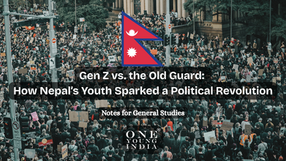top of page


How the United Nations is Struggling to Stay Relevant in a Fragmented World
Introduction There is a phrase increasingly echoed in international affairs classrooms, diplomatic circles, and policy papers: “The United Nations is facing an identity crisis.” At first glance, this seems like an exaggeration. After all, the UN is still the world’s largest international organization, with 193 member states, dozens of specialized agencies, and a global presence that influences everything from refugee aid to climate policy. Its peacekeepers are stationed on mu


How Windmills Make Energy: The Science, Engineering, and Hidden Complexity Behind Wind Power
Introduction: Turning Moving Air Into Electricity Stand beneath a modern wind turbine and look up. The blades sweep across the sky with a calm grace that makes it easy to forget the engineering complexity behind them. These structures, often taller than skyscrapers, convert something seemingly gentle and inconsistent—the wind—into a steady supply of electricity. Wind turbines are not simple machines or oversized fans. They are aerodynamic devices based on principles similar t


Foods That Shaped Empires: Salt Routes, Spice Trade, Sugar Economy
Have you ever noticed how ordinary ingredients like salt on fries, masala in dal, or sugar in your tea feel so normal today?But what if I told you that these simple ingredients once decided the rise and fall of kingdoms? Centuries ago: Spices were worth more than gold Salt could determine whether an army survived Sugar powered economies and reshaped entire societies Today these foods seem cheap and ordinary. But their history is filled with adventure, exploration, conflict, a


How Food Insecurity Is Rising Worldwide: Conflict, Climate & Aid Crises
Introduction We live in a time when hunger is no longer just a plight of isolated regions—it has become a global crisis. The number of people suffering acute food insecurity (meaning they can’t reliably access enough safe, nutritious food) has been climbing for years. According to recent reports, over 295 million people across 53 countries and territories experienced this level of hunger in 2024—that’s an increase of around 13.7 million from the year before. In simple terms:


Sudan on Fire: How the Nation Slipped Into Chaos and Why the World Must Pay Attention
A Nation on the Brink Imagine waking up to the sound of explosions, in a city where the horizon glows orange not from sunrise, but from fires consuming entire neighborhoods.This isn’t a movie scene. It’s Sudan — a country once full of hope after toppling a dictator, now trapped in one of the world’s worst humanitarian nightmares. In 2025, Sudan is no longer just a country at war. It’s a country unraveling — its cities shattered, its people starving, and its future hanging by


Balancing Power: How India’s Strategic Autonomy Shapes Growth, Security, and Global Influence
I. Introduction Imagine a young policy analyst in New Delhi, poring over classified cables: the UN is voting on a contentious resolution condemning sanctions on a major power. India must choose—vote with the U.S., with Russia, abstain, or propose a neutral text. The choice seems technical, but to the world it signals alliances, direction, and identity. This moment encapsulates India’s perpetual tightrope walk: asserting strategic autonomy while navigating pressure from global


How Do Hurricanes Form and Gain Strength?
Introduction: Nature’s Most Powerful Storms Every year, millions of people around the world face the wrath of hurricanes—storms so...


From Samurai to Silicon: How Japan Reinvented Itself Twice
Introduction: The Land of Endless Reinvention Few nations in history have shown the resilience, adaptability, and sheer determination...


The Invisible Web: How GPS Pinpoints Your Location Anywhere on Earth
Introduction: A Modern-Day Compass In a world where we rely on our smartphones for everything from finding the nearest coffee shop to...


The Digital Divide: Can Bharat Keep Up With India?
Introduction – Two Nations in One India is often celebrated as a rising digital powerhouse, with world-class IT hubs, global unicorns,...


Gen Z vs. the Old Guard: How Nepal’s Youth Sparked a Political Revolution
Introduction – A Youthquake in Nepalese Politics Nepal has long been governed by political elites who carried the legacy of monarchy,...


River Linking Projects: Solution to Floods and Droughts or Ecological Gamble?
Introduction – The Ambitious Dream of River Linking Water has always been both a blessing and a challenge for India. Every year, while...


Africa’s New Role in Global Politics: Beyond Aid and Dependency
Introduction – The Changing Face of Africa in Global Politics For much of the late 20th century, Africa was perceived as a continent...


Geopolitics of Food Security
Food security today is no longer just about feeding populations. It is about maintaining stability, preserving sovereignty, and wielding...


Climate Migration: How Rising Seas Redraw Borders
For centuries, borders have been drawn on maps with the assumption that land is permanent, stable, and immovable. But what happens when...


Deglobalization or Reglobalization? The World After Supply Chain Shocks
Globalization has long been celebrated as the invisible force knitting the world together. Cheaper goods, interdependent economies, and...


Climate Economics: Can Growth and Green Goals Coexist?
Economic growth has been the yardstick of progress for centuries. From Adam Smith’s Wealth of Nations to the modern obsession with GDP,...


The Fallout of 50% Tariffs: India–U.S. Tensions Escalate
1. Introduction: A Trade War in the Making? Trade has always been at the heart of U.S.–India relations. For decades, the two nations have...


The BRICS Expansion: A New World Bank in the Making?
1. Introduction: A New Era in Global Finance? For decades, the global financial system has been dominated by the International Monetary...


Green Energy Colonialism: How the West Is Exploiting the Global South Again
1. Introduction: A Green Revolution with a Dark Underside In the 21st century, the global conversation around energy has shifted...


Niger, Sahel, and the New Frontline of Global Terrorism
1. Introduction: A Region at the Crossroads The Sahel region — stretching from the Atlantic coast of Africa through Niger and into Sudan...


Iran, Israel, and India: Walking a Diplomatic Minefield
India's foreign policy has long been defined by a fine balancing act. Nowhere is this more evident than in its simultaneous diplomatic...


Afghanistan, Taliban 2.0, and India's Strategic Dilemma
The return of the Taliban to power in Afghanistan in August 2021 marked a dramatic shift in South Asia’s geopolitical landscape. After...


Climate Nationalism: Is the Global Climate Fight Falling Apart?
As climate change accelerates, the world faces an unprecedented need for collective action. Rising sea levels, intensifying wildfires,...
bottom of page
